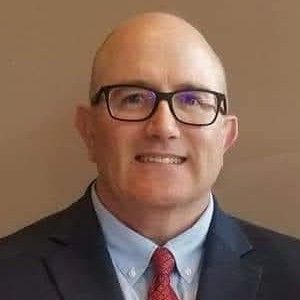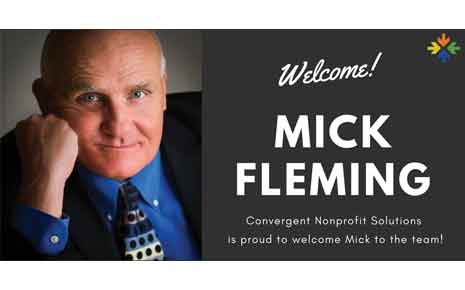In December I reached out to community college leaders across the country to ask, 'What are the next big trends in the world of community college fundraising?' While some speculated about the ways social media could become a stronger fundraising tool, others focused on how changes to the strategic planning process could be made to enhance fundraising efforts. There was, however, one topic that kept popping up over and over again with astonishing consistency...
Promise Programs.
Promise Programs.
And more Promise Programs.
What started as part of President Obama's 2015 State of the Union speech where he challenged us as a nation to strive towards making community college free has ignited a spark that swept across the country. Since 2015, 16 states have passed statewide legislation and more than 200 local College Promise Programs in 42 states have created programs aimed at increasing student success and funding community college costs for students. Whatever your personal feelings about Promise Programs are, it looks as though they're here to stay.
Why have Promise Programs become so popular, so quickly?
The proven link between Promise Programs and economic vitality has created a wave of momentum throughout both classrooms and boardrooms. After all, we're all aware of the vital role community colleges play in creating a trained and relevant workforce. Add to that, according to the Brookings Institute, on average nearly 70 percent of alumni from two-year colleges remain in the area of their college after attending, compared to 42 percent of alumni from four-year colleges. Based on geography alone, investing in a community college is an investment in the future economic viability of the region.
How can Promise Programs benefit your college?
Not all Promise Programs are the same. While consistent in mission, the focus and structure can vary widely based on the needs of the community the Promise serves. While large, state-wide Promise Programs like Tennesseâs have been getting most of the spotlight and media attention, some community college leaders have adjusted the scope, marrying regional employment needs with focused Promise Programs.
A great example of this is Dr. Edna Baehre-Kolovani, President of Tidewater Community College in Virginia, who is leading an effort focused on providing a pipeline of women and minorities into the STEM Industry.
As Dr. Kolovani states,
‘We launched the TCC Women’s Center STEM Promise Program in the spring of 2017 with funding through our Education Foundation, targeting six degree areas where women and minorities were disproportionately underrepresented in enrollments. The areas are, so far, cybersecurity, computer science, civil engineering, electronics technology, and mechanical engineering technologies. Scholarships cover tuition and fees for up to two academic years. Program participants also receive leadership training and mentoring, plus industry internships.
We plan to add thirty new students to the program each year.
Many employers and private donors have recognized the importance of this initiative and have committed private dollars to sponsor either a whole class of 20 or one or several students for a two year period. Our ultimate fundraising goal for this program is $2 Million.
Through this program we are building a pipeline of excellent students, and future employees, in the Science, Engineering, and Mathematics fields.'
How do you keep your college's fundraising efforts relevant with Promise Programs in place?
A shining star of the Tennessee Promise Program has been Pellissippi State Community College in Knoxville, where President Anthony L. Wise, Jr. has helped roll out some complementary programs to the Tennessee Promise initiatives. One program, Reconnect Now, is a program aimed at providing scholarship funds for adult learners returning to school.
'Our pilot of Reconnect Now has proven that adults in Tennessee have waited for an opportunity like this,' said Dr. Wise. 'Pellissippi State is proud to open the doors of education to everyone.'
As a result of these efforts, Pellissippi State Community College is seeing record enrollments. When classes began August 28, 2017, approximately 11,168 students walked onto Pellissippi State's five campuses which reflected an increase in enrollment of about nine percent over the same day last year and an increase of greater than 30% in adult learners.
'Covering the cost of tuition and fees does not meet all of the needs of adults with jobs, families, and lives outside of school,' Wise said. 'We have expanded the classes and programs we offer online, in the evenings and on weekends to fit adults schedules, and w'e're pairing adult learners with support services like free childcare for qualified single parents, credit for prior learning and even an academic fresh start if they've tried college before unsuccessfully. We've started a college garden and a food pantry for students struggling with food security and hope to improve transportation support going forward as well.'
As 2018 unfolds, we will see if the predictions of expanded Promise Programs holds true, but clearly, these efforts will play an increasingly important role in community college fundraising. The good news is, all indications point to Promise Programs inspiring a new group of funders to see the value of investing in community colleges. Now it's up to community college leaders to determine how best to integrate Promise Programs into their overall fundraising strategies.
Convergent Nonprofit Solutions is the leading consulting firm in the country helping communities and community colleges raise funds for Promise Programs. We are experts in helping develop a shared vision between funders and institutions to create future regional economic viability through Promise Programs. For more information contact us at Info@ConvergentNonprofit.com.







